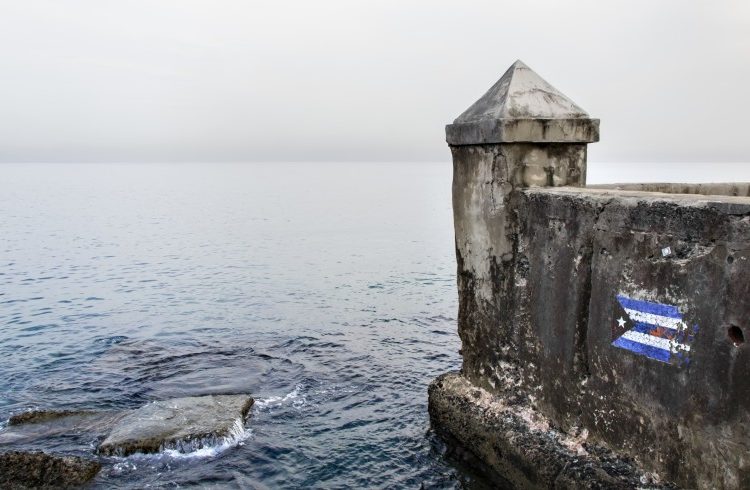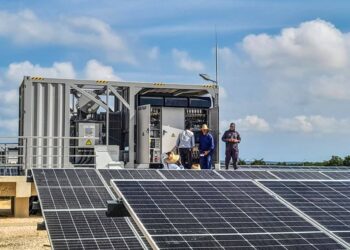A few days ago two gametes texts showed on my table, such that when put together are capable of generating, as in biology, live offspring. The texts were a post of my brother, posted on his facebook wall and the speech Los Pinos Nuevos, delivered by José Martí at the Lyceum in Tampa, on November 27, 1891. My brother, like me, is one of the millions of Cubans who “chose” to live temporarily or permanently outside Cuba. IT specialist, young, Doctor of Science that write codes today for a research group at the University of Cambridge, that of Watson-Crick and beers, with Stephen Hawking and his theory of everything. In his text my brother asks us the question: How long will our country authorities intend to blow up the bridge that communicates Cuba with its diaspora? When would they understand that the future of the nation, even despite of them, goes inexorably through the reconciliation with its exile? When would they understand, and I say, we understand- the Cuba to which we all aspire will not become ever while still starting halves in and out without establishing a solid bridge where there are no border points?
My brother´s questions and vision of Martí talking to the exile, the need for them to get together for the Cuba they expected, threw me in the search for data, robust statistics, arbitrated if you will, that allowed me to approach as objectively the logic of the questions posed. And while answering the question can our country continue postponing the dialogue, incorporating its Diaspora to the decisions and actions on building its future?
The answers began to take shape quickly. The statistics, their logic which in this case is not cold, but as we say here, are “a hot topic”, constituted from baseline in solid reasons to begin building that bridge. They are the first stones. More than 2.5 million Cubans are living outside the island today. That is, for example, the total population of Havana and Artemisa when you consider the figures from the Statistical Yearbook of Cuba, 2012, published by the National Statistics Office (ONE) [1]. This paper reports that in that year the total population was 11,163,934 people. Using simple mathematics we arrived at the result that around one in four Cubans now live abroad. Another very interesting fact is that as the office itself, the projection for 2030 is a decrease in the Cuban population over a quarter of a million people.
Putting the data back into perspective is a reduction of close to half the current population of Pinar del Río or the Cuban population aged 30-34 years. But there is more in the yearbook and here I remember why so many Cubans often wonder: how do we get out of Cuba each year? Can the nation keep pace with the drain? According to ONE, about 46,662 Cubans left the country in 2012. This is the highest figure since 1994. It is notable also that from 2001-2011 the average output was around 35,000 per year, most of which, I stressed, are people who are of working age. The figures, statistics, then, leave no doubt Cuba is leaving Cuba. And especially one that can be more work for their present and decide on their future. This fact coupled with the growing aging population and declining birth rate highlight the importance of reconciliation with exile. With the Cuba that was, or if you prefer, that left. Mathematics, so accurate, so stripped of clouds that sometimes entered this type of analysis, so devoid of emotions, leaves no doubt: Cuba will have to make amends and design its future counting on his exile.
Deep already in the argument of numbers I sought the answer to an issue that has become almost a myth inside and outside the island. The famous statement that our levels of emigration are the largest not only in Latin America but in the world – we know that around here we like to put it all into tremendous. I find then that according to the United Nations, in 2013 there were in the world 232 million migrants [2] of which only 36.7 million were born in Latin America and the Caribbean (LAC). In fact in that year the region experienced the lowest percentage (1.4%) around the planet in terms of the ratio of number of emigrants / total population. If the data are analyzed globally shows that with the exception of Mexico, not Cuba, no other Latin American country appears in the top ten countries with the highest rates of emigration. And in Latin America? Here the analysis is somewhat different, but not too significant to justify the view that of that bleeding country many have.
According to a report by the Organization of American States (OAS) [3], Cuba has 8.7% of migrants / total population, a value that is lower than that of Mexico, El Salvador, Nicaragua, Dominican Republic and several small Caribbean nations. And then what is the genesis of this vision when statistics are finished and the milestone is maimed of its foundation? The answer I think is beyond what the numbers don’t say. It’s in migration incendiary policies that the country has maintained for years and who have divorced also imperative part of it that it is undoubtedly its Diaspora. These policies have determined that people leave, and they are not simply going. Even today, when for most going is not a political position and most importantly, a definitive break.
Most in my generation have decided to live temporarily or permanently outside Cuba, but not before getting everything in us is hurt that decision, do not want to extirpate Cuba. Put it in the bottom of a chest. They want and are willing to help in the effort to see it renewed, grow. Smiling. Hence in this case the answer is not in numbers but in attitudes. And attitudes justify the vision, the milestone that there will be no one to turn off the lighthouse. Now is therefore the final time to change those attitudes.
I look then, and reread as a whole, that other text that interrupts my wooden table. From it I get to hear Martí speaking to everyone, from exile in Tampa, yes, and in Miami, Madrid, Cambridge or Sao Paulo. Also those who are in Cuba. And he doesn’t divide us, or sort. He calls us Cubans. That word that according to him in With All and For the Good of All, one says “… and a soft sweetness of brotherhood spreads through our guts, and the box of our savings opens by itself, and we squeezed to a make another post more on the table, and take heart love wings to cover him who was born on the same land that we …”
And Martí speaks to me, to my brother, speaks to us all and said that Cuba, this enormous entity that contains us and that is above governments, policy, left and right, will call us again. It will build with all hands that urgent bridge has to take us back. All, all, because they set the numbers, it imposes this time, and as Martí predicted, are new or newest pines with which our country, because it needs and wants, will count on










